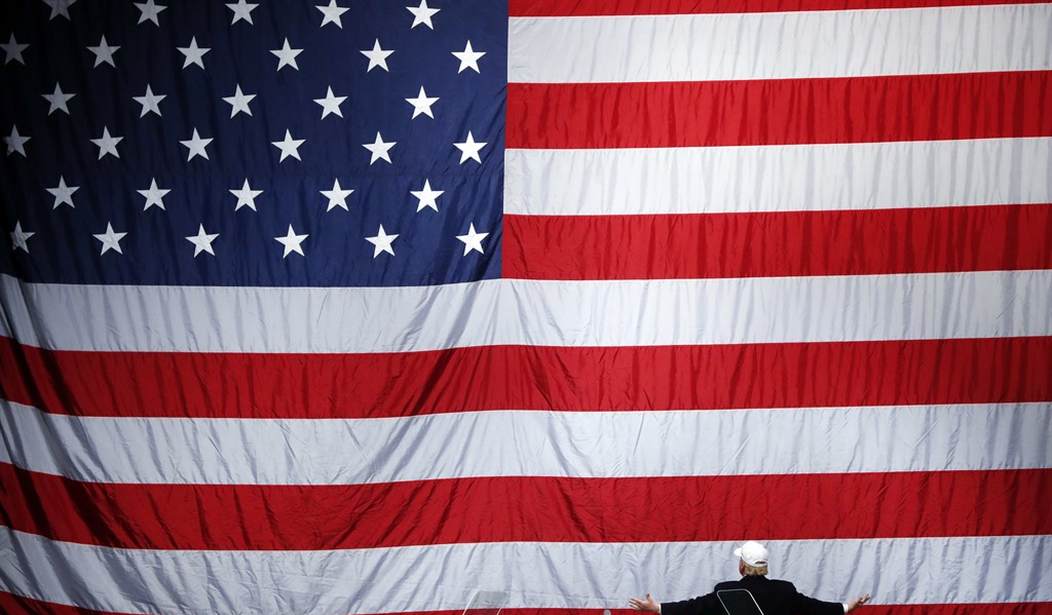"From this day forward, a new vision will govern our land. From this day forward, it's going to be only America first, America first." -- President Trump, inaugural address, Jan. 20, 2017
President Trump is something of a paradox. He roots himself in nostalgia for yesteryear -- "Make America great again!" -- but is remarkably unconcerned with history. He ransacks the past for rhetorical baubles but declines to carry their historical baggage too.
In 2015, a Washington Post reporter had to remind Trump that his use of the phrase "silent majority" had Nixonian "overtones." "Oh, is that why people stopped using [the phrase]?" Trump replied. "Nobody thinks of Nixon. I don't think of Nixon when I think of the silent majority."
He invokes the "forgotten man" as if he invented the term, never indicating that it was one of Franklin D. Roosevelt's central themes.
His inaugural address made almost no reference to American history. His populist rejection of the status quo and the establishment suggests that he thinks the country is starting over at Year Zero. Indeed, he repeated a standard campaign line that at least some historians might quibble with: that he was elected by a "historic movement, the likes of which the world has never seen before."
Which brings us to "America first," a slogan the president seems to have first absorbed from a New York Times reporter trying to characterize the candidate's positions. As with "silent majority," Trump refuses to accept what that term means to many of the people who hear him use it.
Recommended
Granted, it's more complicated than mainstream journalists would have you believe.
The America First Committee was founded in the spring of 1940 by isolationist students at Yale University and quickly became a major national movement -- though it was never the purely right-wing phenomenon many claim. Many Republicans and conservatives supported it (including a then-15-year-old William F. Buckley, who as an adult repudiated isolationism and barred isolationists from the pages of National Review).
But other allies in the isolationist or "non-interventionist" cause included American Socialist Party leader Norman Thomas, liberal journalist Oswald Garrison Villard, and such progressive icons Charles Beard, John Dewey, Joseph Kennedy, Bernard Baruch and Progressive Party hero Robert La Follette. Though it's true the German American Bund had opposed war, so did American pacifist organizations (until the Soviets told them to change their position). Isolationism is a bipartisan American tradition, and its defenders can claim George Washington's farewell address as proof of its pedigree.
The entire purpose of the America First Committee was to keep FDR from dragging the U.S. into another European war. Given the still fresh memory of the horror -- both at home and abroad -- of World War I, this always struck me as a defensible if, in hindsight, wrong position.
The isolationists had largely fought FDR to a political standstill until Pearl Harbor, which ended all debate. After the war, with the full knowledge of Nazi crimes and years of domestic patriotic fervor, the term "America first" took on a more sinister reputation in retrospect than it deserved (influenced by FDR's political vendettas against the isolationists during the war). Some Jewish groups to this day unfairly consider it vague code for "America should have let the Holocaust run its course."
That Trump could so easily adopt "America first" without being hobbled by its negative connotation was a political coup. He insists that it's just a catchphrase for prioritizing American interests. Even though the term is both catnip and dog whistle to some of his more unsavory fans, I think he's sincere.
Still, my problem with Trump's version of "America first" isn't his desire to do what is in America's best interests -- who could oppose that? It's how he defines America's best interest -- and its best self. With his blind eye to the past, he's stumbled into old-fashioned nationalism.
Up until very recently, American exceptionalism -- i.e., we are a creedal nation dedicated to certain principles reflected in our founding documents -- largely defined the conservative understanding of patriotism.
Trump, however, sees America more as an identity than an idea. He promised that America's example "will shine for everyone to follow," but he defined that example not in terms of our liberties or ideals, but in terms of unity. We will rebuild "our country with American hands and American labor" following "two simple rules: buy American and hire American." We will shine through our success at building infrastructure, walling off our economy and crushing our enemies.
All in all, this is no "new vision" -- though it is arguably new for an American president.
























Join the conversation as a VIP Member